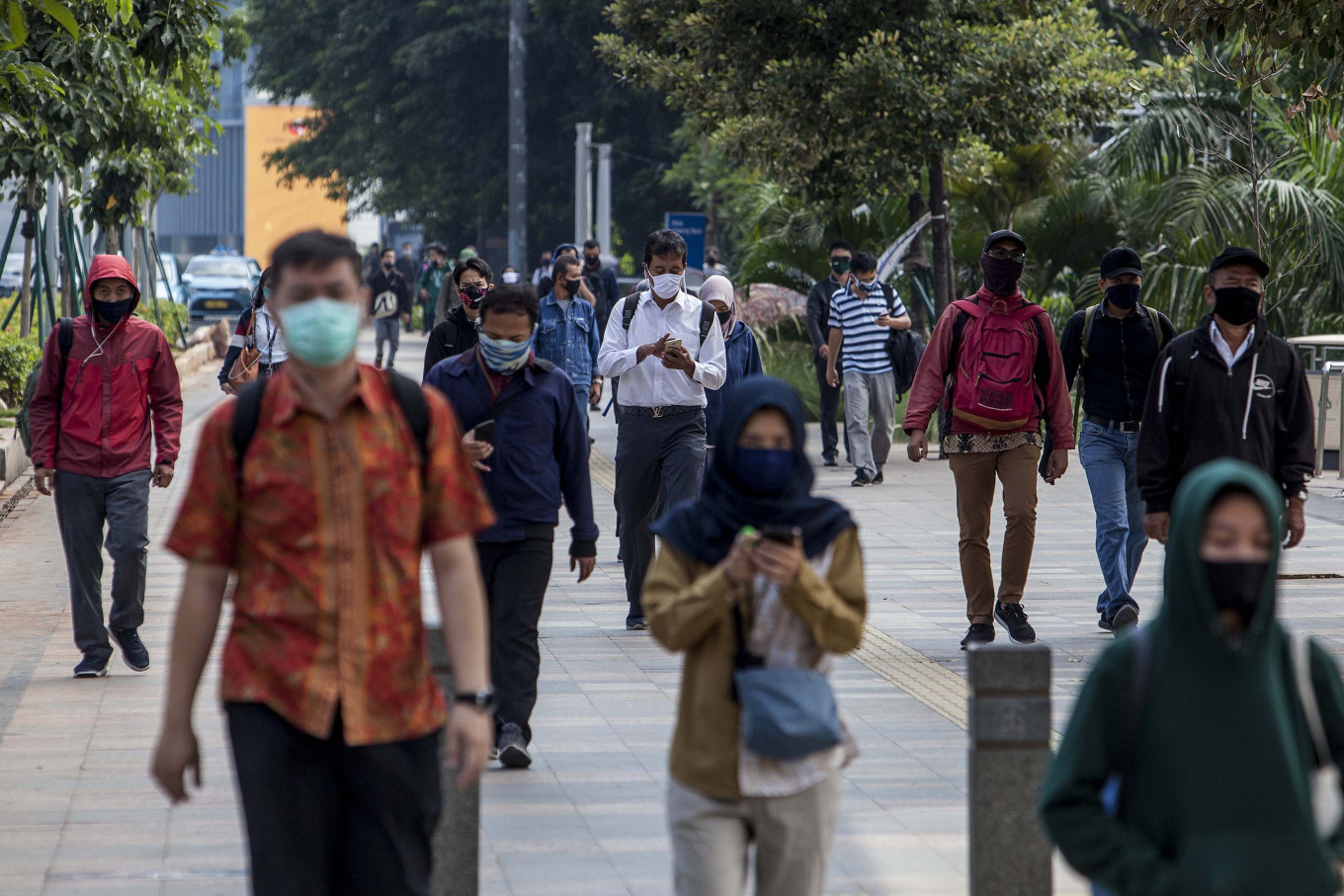Popular Reads
Top Results
Can't find what you're looking for?
View all search resultsPopular Reads
Top Results
Can't find what you're looking for?
View all search resultsExperts urge government to fix COVID-19 handling to prevent social unrest
Experts from Yogyakarta-based Gadjah Mada University (UGM) have urged the government to improve its handling of the COVID-19 pandemic as fears of potential social unrest grow as economic woes worsen.
Change text size
Gift Premium Articles
to Anyone
Experts from Yogyakarta-based Gadjah Mada University (UGM) have urged the government to improve its handling of the COVID-19 pandemic as fears of potential social unrest grow as economic woes worsen.
Economist from UGM’s School of Economics and Business Eddy Junarsin said he predicted Indonesia’s negative economic growth to continue in the third quarter, which could lead to the country entering a recession. The situation, he said, could be worse if the government failed to take more accurate and consistent policies in handling the current crisis caused by the pandemic.
“Sluggish and out of sync policies can prolong the economic impacts. It will make the recovery longer. Therefore, the government must mend its pandemic management,” he said in a statement on Wednesday.
To avoid a recession, Eddy advised the government to increase social safety net programs and incentives for business sectors to stimulate the economy, especially if the government decided to implement short-term nationwide large-scale social restrictions (PSBB). Providing monetary stimulus by slashing the benchmark interest rate could also help attract investors, he said.
Eddy stressed that if the government could improve its handling of the pandemic and come up with better management schemes, the economy could rebound in the fourth quarter. However, if the government failed, he added, there was potential for social unrest to emerge, spurred by high unemployment and poverty rates.
“If the recession takes place in one to two quarters, the resilience of the government and the people can still be maintained, but if [the recession] takes place over more than three quarters, there is very high potential for social unrest,” he added.
Meanwhile, dean of UGM’s School of Psychology Faturochman said the government must also come up with an effective formula for implementing COVID-19 health protocols to stop the spread of the virus.
He added that people’s compliance with the protocol had not been optimal, as there have been many reports of people conducting outdoor activities without masks and ignoring physical distancing.
The situation has led to a number of regional administrations meting out either physical or social punishment such as making offenders do pushups or pay a fine.
“The question is, do the measures create a deterrent effect?” he said.
Faturochman suggested that such measures should have begun within government institutions, public service offices and business centers, as these were the parties expected to be disciplined in implementing health protocols while providing services or conducting their business activities.
“This is what needs to be enforced first, not [people] on the streets. This will be more effective,” he said.
Separately, Muhammadiyah COVID-19 Command Center (MCCC) chairman Mohammad Agus Samsudin also expressed concern over the public’s lack of awareness about the importance of following health protocols amid the increasing number of COVID-19 cases and deaths in the country.
“The pandemic is not yet over,” said Agus, adding that the organization reiterated the importance of health protocols to curb the spread of the virus.










